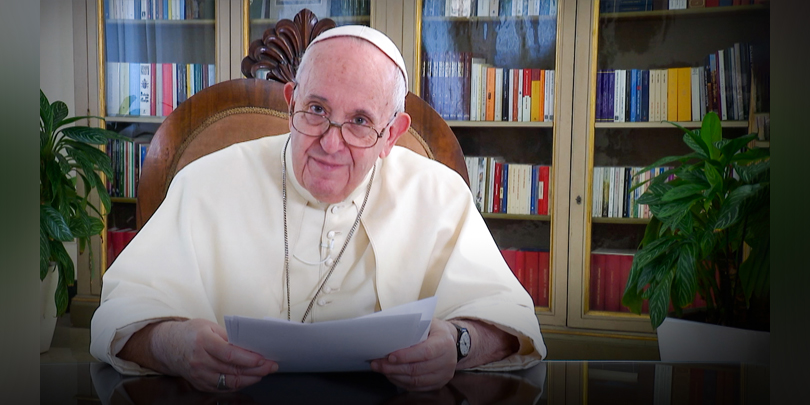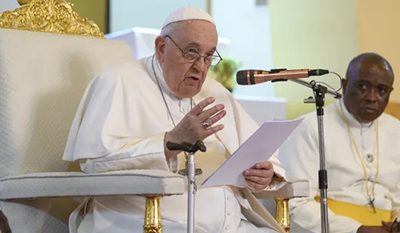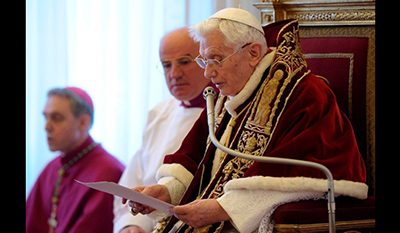
From the very start of his papacy, Francis seemed determined to do things differently and present the papacy in a new light, write ACU’s Joel Hodge and Antonia Pizzey. Source: The Conversation.
There were many unusual aspects of Pope Francis’s papacy. He was the first Jesuit pope, the first from the Americas (and the southern hemisphere), the first to choose the name “Francis” and the first to give a TED talk.
Even in thinking about his burial, he chose the unexpected: to be placed to rest not in the Vatican, but in the Basilica of St Mary Major in Rome – the first pope to be buried there in hundreds of years.
Straddling a line between “progressive” and “conservative”, Francis experienced tension with both sides. In doing so, his papacy shone a spotlight on what it means to be Catholic today.
Francis was deemed not progressive enough by some, yet far too progressive by others.
His apostolic exhortation, Amoris Laetitia, ignited great controversy for seemingly being (more) open to the question of whether people who have divorced and remarried may receive the Eucharist.
He also disappointed progressive Catholics, many of whom hoped he would make stronger changes on issues such as the roles of women, married clergy, and the broader inclusion of LGBTQIA+ Catholics.
At the same time, Francis was no stranger to controversy from the conservative side of the Church, receiving “dubia” or “theological doubts” over his teaching from some of his cardinals. In 2023, he took the unusual step of responding to some of these doubts.
He is recognised as giving a clear witness to the life, love and joy of Jesus in the spirit of the Second Vatican Council – a point of major reform in modern Church history. This witness has translated into two major developments in Church teachings and life.
The first of these relates to environmental teachings. In 2015, Francis released his ground-breaking encyclical, Laudato Si’: On Care for Our Common Home. It expanded Catholic social teaching by giving a comprehensive account of how the environment reflects our God-given “common home”.
Francis’s second major contribution, and one of the most significant aspects of his papacy, was his commitment to “synodality”. While there’s still confusion over what synodality actually means, and its potential for political distortion, it is above all a way of listening and discerning through openness to the guidance of the Holy Spirit.
Joel Hodge is senior lecturer at ACU’s Faculty of Theology and Philosophy and Antonia Pizzey is a postdoctoral researcher at ACU’s Research Centre for Studies of the Second Vatican Council.
FULL STORY
Pope Francis has died, aged 88. These were his greatest reforms – and controversies (By Joel Hodge and Antonia Pizzey, ACU via The Conversation)
RELATED COVERAGE
Fearless visionary: the legacy of a Jesuit pope (The Australian)
Well-travelled Pope never made it to Australia – or to his home country (The Age)




